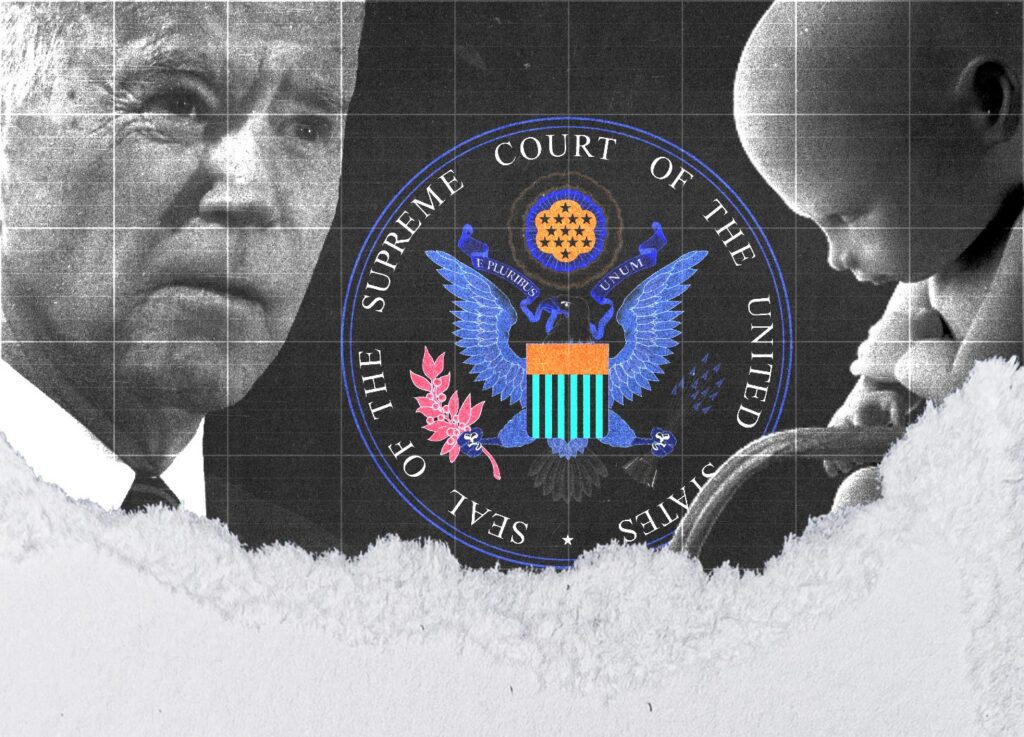
On Wednesday, the Supreme Court heard the Biden administration try to explain why ER doctors should be forced to perform abortions that would violate state law. Audio and transcript are available online.
Ahead of the oral arguments, SBA’s State Public Affairs Director Kelsey Pritchard dismantled three lies that confuse doctors and endanger women’s lives:
Our team was listening for all two hours. Here are some of the key moments:
After about another hour, Alito reminded the Court once again that there are two patients involved in the EMTALA discussion. Solicitor General Elizabeth Prelogar’s response not only characterized the inclusion of the baby as merely an expansion of protections for pregnant women – she couldn’t even bring herself to use the words “unborn child,” which are right in the statute.
Listen to this pivotal exchange:
On X, reporter John McCormack points out, “Congressional Democrats’ federal abortion legislation [the grossly misnamed Women’s Health Protection Act] includes a post-viability health exception—not limited to physical health.”
But Prelogar shot a big hole in the Democrats’ argument:
There can be complications that happen after viability, but there, the standard of care is to deliver the baby if you need the pregnancy to end because it’s causing these severe health consequences for the mom.
Abortion advocates won’t be happy. After they have spent months complaining that the lack of such loopholes in state laws and/or ballot initiatives is “cruel and will lead to the suffering deaths of pregnant women in these states,” causes stigma, and discriminates against “pregnant and postpartum people,” Prelogar – arguing on behalf of the federal government, believe it or not – stated clearly that abortion isn’t a treatment for mental health crises:
There can be grave mental health emergencies, but EMTALA could never require pregnancy termination as the stabilizing care…because that wouldn’t do anything to address the underlying brain chemistry issue that’s causing the mental health emergency in the first place. This is not about mental health generally. This is about treatment by ER doctors in an emergency room. And when a woman comes in with some grave mental health emergency, if she happens to be pregnant, it would be incredibly unethical to terminate her pregnancy. She might not be in a position to give any informed consent. Instead, the way you treat mental health emergency is to address what’s happening in the brain.
She’s not wrong. There is no evidence abortion improves mental health outcomes for women. There is evidence that, at least for some women, abortion contributes to mental health problems such as PTSD, substance abuse and increased risk of suicide.
Charlotte Lozier Institute’s Dr. Ingrid Skop, a practicing Texas OB-GYN, shared her view of the case on Morning Wire.
The Supreme Court will have to decide on EMTALA and mail-order abortion drugs by around the end of June. Between these two cases and the coming election, life issues will not be out of the limelight any time soon.

When the U.S. Supreme Court overturned Roe v. Wade, our movement was given a historic opportunity. But the battle for life became much more difficult.
Add your name with thousands of others who are committed to protecting mothers the right to life for innocent unborn children.
Add My Name